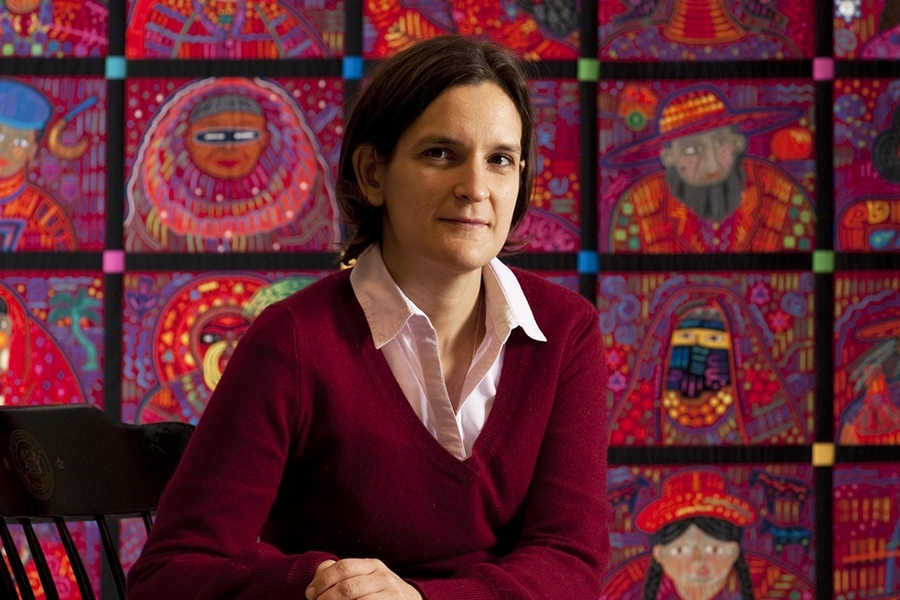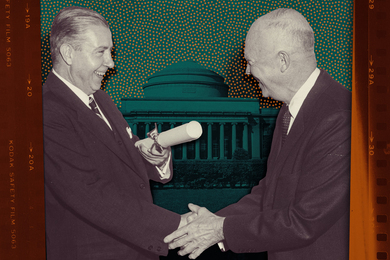Esther Duflo, the Abdul Latif Jameel Professor of Poverty Alleviation and Development in the Department of Economics and a director at the Abdul Latif Jameel Poverty Action Lab (J-PAL), has been awarded the 2015 Princess of Asturias Award for Social Sciences for “her innovative and decisive contributions to development economics and the study of policies to reduce poverty.”
According to the Princess of Asturias Foundation announcement, "Duflo has applied novel experimental methods to evaluate the effectiveness of policies to reduce economic and social inequality, especially in Africa, Asia, and Latin America. The results of her research have profoundly renewed the design of strategies in the fields of education, health, microfinance, and employment."
The foundation, which bestows these prestigious awards annually in fields ranging from the arts to international cooperation, promotes scientific, cultural, and humanistic values and works to consolidate the links between the Principality of Asturias and the Crown of Spain. Of the award, Duflo says, "I feel honored and humbled. This recognizes the work of more than 100 affiliated researchers in J-PAL’s network and that of many, many staff members. I hope it will help further increase the recognition of the work that we all do and open new ideas and paths for research."
J-PAL was founded in 2003 and has since grown into a global network of more than 100 affiliated professors who use randomized evaluations to answer critical policy questions in the fight against poverty.
In a May 14 interview published in ABC, one of largest newspapers in Spain, Duflo explained the benefit of this approach. "Suppose you want to try a new idea, for example the idea of giving people a small reward if they immunize their children. We would implement the program in 50 villages, randomly selected out of a 100, and compare the immunization rates in the two groups of villages. Because they were randomly selected, they are very similar. So any difference between them is due to the program."
Randomized evaluations are used around the world, including in Europe, Latin America and the Caribbean, and North America by J-PAL’s regional offices, to help understand what works and what doesn’t in development and social programs. These programs are being taken to scale when proven effective. For example, in November 2014 the French government announced that it would roll out a program to provide parents and students with information and referral on the many options they can have at the end of compulsory middle school, a decisive moment in the French educational system for students to choose a specific educational track. Research by J-PAL affiliates Dominique Goux of the Center for Research in Economics and Statistics, Marc Gurgand of the Paris School of Economics-CNRS and J-PAL Europe, and Eric Maurin of the Paris School of Economics-EHESS, with funding from the Fonds d’Expérimentation pour la Jeunesse (Experimental Youth Foundation) and the rector of the Academy of Versailles, showed that it was possible to influence adolescent school choices in a way that is likely to improve their lifelong outcomes at little direct cost. The intervention also showed a reduction in grade repetition and high school dropout by 25-40 percent.
"We need to be much more serious about testing out ideas and programs addressing the challenges of poverty everywhere. It’s the only way to understand the lives of the poor, and hence what would really help them. This is why we created J-PAL: It is devoted to the rigorous experimentation of anti-poverty strategies," Duflo concludes.
Previous MIT recipients, all in the Technical and Scientific Research category, are: Tim Berners-Lee in 2002, Robert Weinberg in 2004, and Robert Langer in 2008. The Princess of Asturias Awards ceremony will be presided by His Majesty King Felipe of Spain in the town of Oviedo in October.











